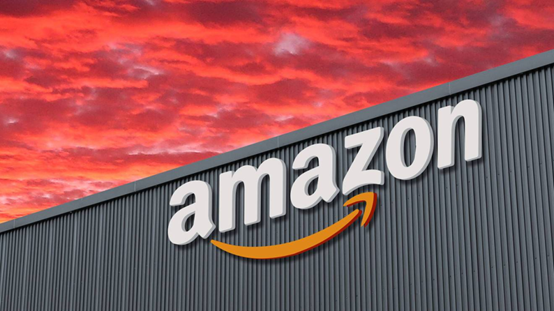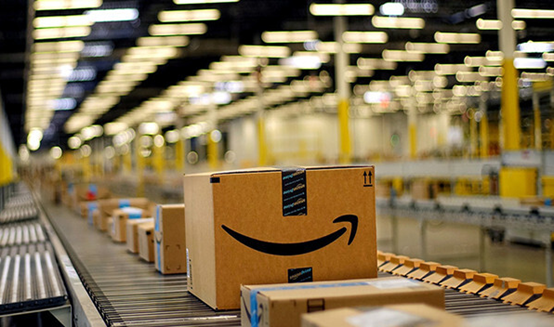
![[sort:pic]](/template/default/images/banner/3-1.jpg)

Every micro change is worth commemorating and creating value for customers in the process of change.
Share
Amazon FBA丨How to deal with Amazon’s warehousing restrictions during the peak marketing season?
Alternative: Amazon FBA丨Coping with the peak marketing season? In addition to choosing good products, there is also...!
From August to December every year, it is the peak season for cross-border e-commerce, including back-to-school season, Halloween, Black Friday, Cyber Monday, Christmas, Double Eleven and many other major consumer festivals, so this period is called Known as the "Q4 peak season", these peak marketing seasons have become a "must compete" for Amazon sellers.
In order to welcome the arrival of these festivals, many sellers have entered a state of preparation in advance, stocking up, filling warehouses, and pre-selling in advance to ensure sufficient military supplies in the rear. However, many sellers ignore Amazon FBA warehousing rules, making it difficult to enter warehousing and are restricted from entering warehousing, thus missing out on this peak season. Looking behind it carefully, what is the reason why sellers have difficulty getting inventory? And why is it restricted from entering the warehouse?

01
The more you sell, the more you get, so why are you restricting merchants from warehousing?
This will introduce today’s high-frequency word - warehouse. What is a warehouse? It can be understood that it is a place where things are stored, also called a warehouse. For cross-border merchants and foreign traders, they mainly sell on Amazon, the cross-border e-commerce platform, and Amazon provides warehouse storage services for merchants on its own platform.
But how much storage capacity can meet the needs of e-commerce merchants during the peak marketing season? The answer is unknown. Accordingly, in order to effectively warehouse merchant products, Amazon implements ASIN-level warehousing quantity restrictions, that is, each ASIN has a certain upper limit on the warehousing quantity, referred to as "restricted warehousing".
Why is warehousing still restricted?
(1) The warehouse capacity is limited, and each merchant’s inventory is limited.
(2) There are too many unsaleable products, including products that are out of season, overstocked, low-profit products, low-volume products, etc.
(3) Interference from mobility factors, such as delayed warehousing due to quality issues, order delays, etc.

If the seller warehouses too many goods but cannot sell them, it will eventually turn to the key issue of difficulty in capital turnover. Amazon made this change to reasonably avoid the risks caused by excessive warehousing. But for sellers, such measures by Amazon will affect the layout of the entire store. Therefore, sellers can only nip problems in the bud by properly assessing their sales and inventory, paying attention to Amazon's warehousing restrictions, and taking corresponding measures in a timely manner.
02
Prescribe the right medicine. Sellers need to do this if they don’t want to be restricted when entering the warehouse.
(1) Reasonable planning of inventory
The safest way is for sellers to proactively adapt to the platform's requirements and operate within the specified warehousing volume.
(2) Clarify the cause and effect and defeat them one by one
Low profit product? Try high-margin products; get complaints from customers? Answer patiently and considerately; the quality is too poor? Ensure customer experience and take immediate quality improvement measures... Sellers can check the reasons for restricting warehousing on the Amazon platform, or contact the platform's official customer service to prescribe the right medicine and make timely adjustments.
If you choose the right product and make a promotion plan in advance, it is recommended to check the FBA product warehousing qualifications in advance and enter the warehouse in advance to avoid being unable to enter the warehouse due to liquidation.

(3) Looking for larger third-party warehousing services
Third-party warehousing providers that are more flexible, more convenient, more complete, more thoughtful, and faster are becoming the "new favorite" of sellers. However, finding a reliable warehouse provider is not easy.
When choosing a third party, sellers must clearly understand their needs, including logistics scale, customer distribution, daily incoming and outgoing inventory, timeliness requirements and delivery scope, storage space requirements and expectations, etc.; ensure the safety of goods; fully consider the logistics company The level of informatization allows enterprises to make decisions more quickly and accurately; it is necessary to consider the flexibility of services, the reasonableness of charges, service experience and level, and third parties with rich experience or service experience in the same type of industry can provide corresponding Cases are provided for reference, which can more efficiently meet the seller's own personalized service needs.
If there is such a warehousing company around us, with 50 years of experience, with cooperative overseas cooperative warehouses in many regions around the world, with an area of up to 400,000 square feet, and multiple offices in China, why not come and take a look? ?
03
Shengshi Group, a service provider with 50 years of warehousing experience
Shengshi Group Global Logistics, headquartered in Los Angeles, USA, focuses on one-stop services for US tail-end customs clearance and transshipment, Amazon FBA logistics, and third-party warehouses. The group has more than 50 years of professional customs clearance experience and a self-operated green card Chinese customs clearance team. It has served 4,900+ e-commerce sellers and 150+ Amazon. In 2003, it obtained the Customs Trade Cooperation on Anti-Terrorism (C-TPAT) certification.
The group not only has overseas cooperation warehouses in Los Angeles, New York, Houston, Dallas, Savannah, Chicago, Atlanta and other places, with a total area of 400,000 square feet, but also has multiple offices in China to provide customers with complex market needs. Effective assistance can provide customers with professional and excellent logistics services to help Chinese corporate brands better cross-border overseas expansion.
Foreign traders and cross-border e-commerce merchants are welcome to come for consultation and cooperation~